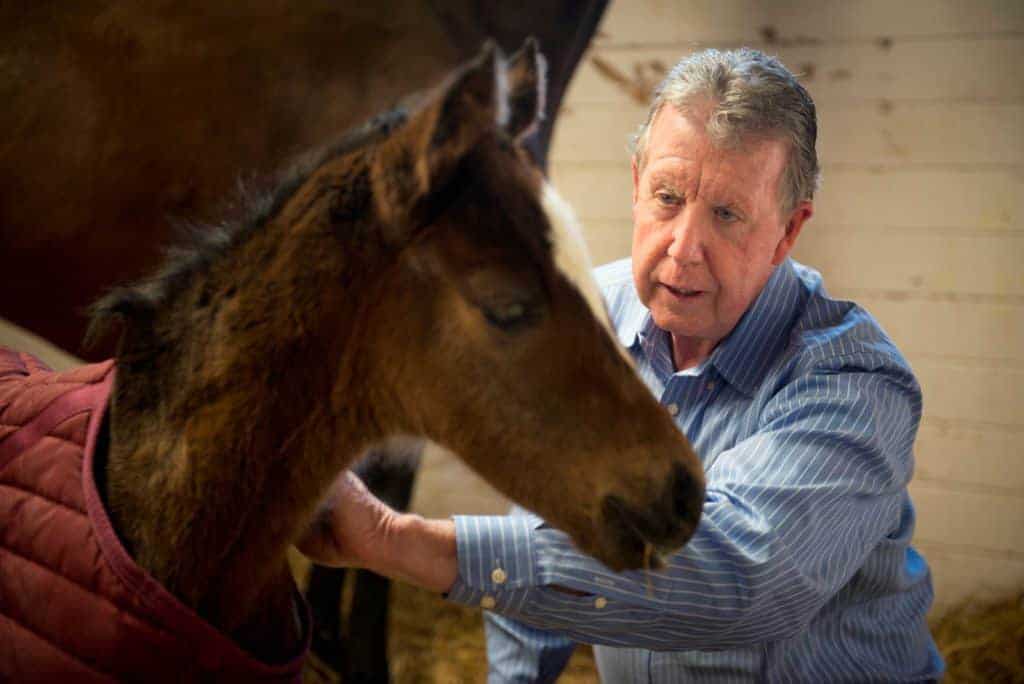
Time to Thrive: Neonatal Health Concerns
Time is life for a foal. Here’s a look at the top causes of illness in newborn foals and how to manage a sick foal.

Time is life for a foal. Here’s a look at the top causes of illness in newborn foals and how to manage a sick foal.

Neonatal maladjustment syndrome is a diagnosis of exclusion that must be reached quickly to save the foal. Learn about commonsense approaches to nursing “dummy foals” back to health.

Do you have a foal due? Learn how to prepare your mare for foaling, care for your newborn, and spot issues early.

Studying diseases across species can benefit horses as well as people.
A wild foal found weak and underweight is recovering from several health problems with a veterinary team’s help.

Learn about healthy foals, problems that are common in newborns, how veterinarians treat these issues, and more.

Dr. John Madigan presented the AAEP’s 2014 Milne lecture on discoveries that changed equine and human health.

Researchers at UC Davis are exploring a possible link between neonatal maladjustment syndrome and childhood autism.

Attendees discussed “dummy” foals, gastric acid suppressant use, and resuscitating foals, among other topics.

Researchers believe the fetal consciousness transition could have a significant impact on neonatal health.
Nothing disrupts the joy of foal ownership like the observation of potential problems: A disinterest in nursing, a depressed attitude, strange mannerisms, or seizures could mean a foal is suffering from some serious neurologic problems. During a
Dummy foal syndrome is not a disease but, rather, a broad term that applies to foals that exhibit abnormal, often vague behaviors and/or neurologic signs during their first few days of life.
The first days of a foal’s life can be risky; there are a number of things that can go wrong. Some problems can be dealt with easily (such as constipation), while others are life-threatening (such as a ruptured bladder).
In this article, Bonni
At first, everything seems fine: Your foal was born without incident and started nursing as he should. But two days later, the baby quit suckling and began acting strangely–wandering around and pressing his head against the stall wall. Your
The basic theme of Rossdale’s presentation was that problems suffered by the fetus before birth and during the birthing process can have long-term effects on the animal’s performance capability and overall health as it grows and matures. With that as a premise, he identified and discussed some of the factors that can have a negative effect before the foal is born and during birth.
Final preparations will need to be made so that the newborn foal gets the best chance at life.
Stay on top of the most recent Horse Health news with
"*" indicates required fields